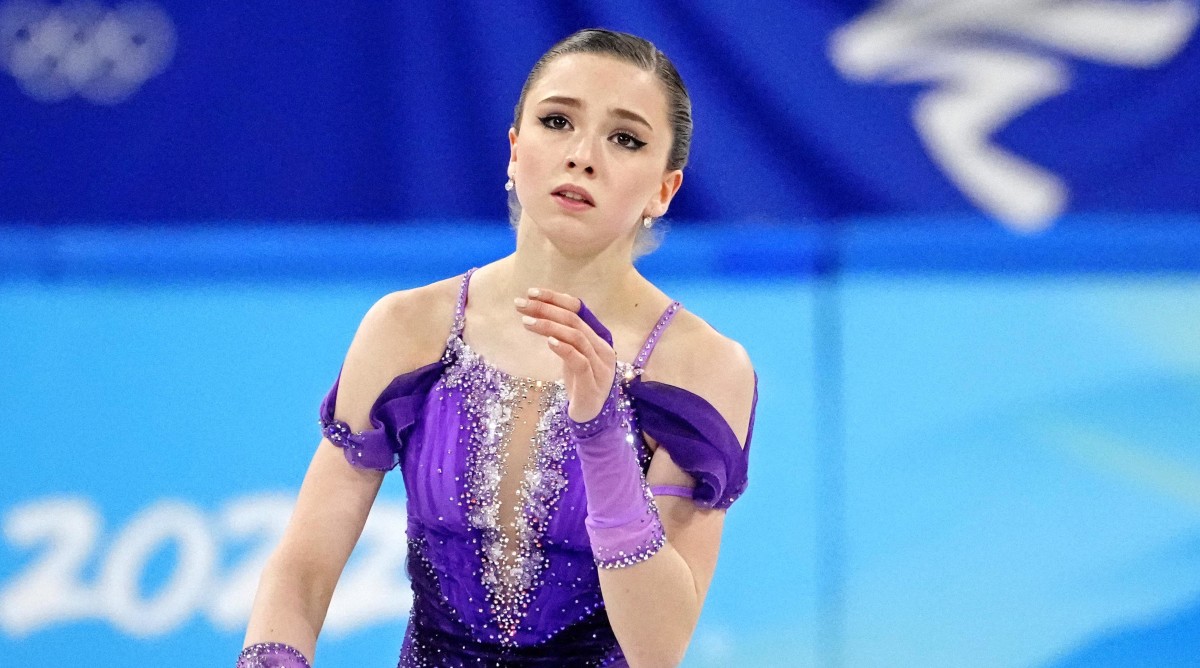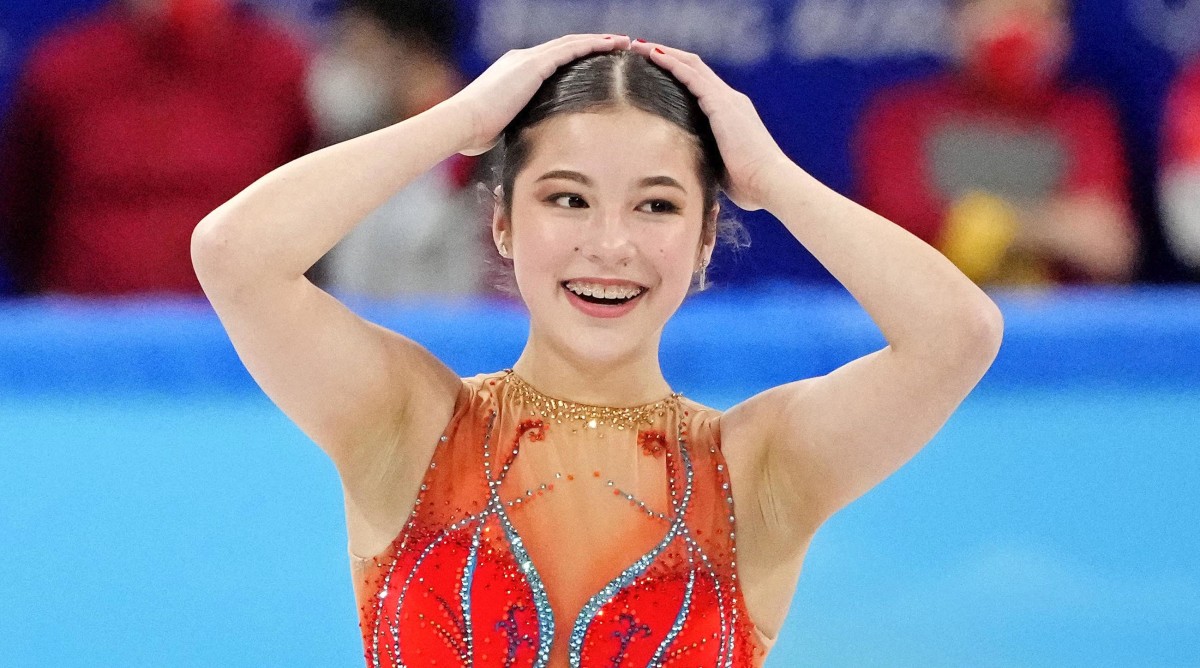It's Time to Raise the Age Minimum in Figure Skating


BEIJING — Kamila Valieva should not be skating at the Olympics. Not just because she failed a drug test taken Christmas Day. Not just because she competes for the Russian Olympic Committee, a shell corporation for Russia. Not just because this whole event has become a sham. Valieva should not be skating at the Olympics because she is 15 years old.
Children should compete against children. Adults should compete against adults. The various intertwined acronyms running all this—the International Olympic Committee, the World Anti-Doping Agency, the Court of Arbitration for Sport—nod at this reality by accepting WADA’s designation of “protected persons”: minors and anyone else who lacks legal capacity. If they commit violations, WADA says, they should be prosecuted differently because they don’t fully understand the consequences of their actions.
Then what on earth are they doing here? It’s time to raise the minimum age in figure skating from 15 to 18: for the health of the athletes, and for the health of their sport.
Unlike the IOC, let’s start with the athletes’ welfare. The IOC has pushed back against the idea that letting children compete here exploits them. “I think what would be disappointing is if we did not allow the opportunity for these athletes to grasp their dreams,” spokesman Mark Adams said on Monday.
Some of the athletes themselves do not necessarily agree. Sixteen-year-old American figure skater Alysa Liu said she would not be especially perturbed if she could not compete at the senior level until age 18. “I’d be like, ‘O.K, I just have to wait a little bit longer,’ which is fine,” she said. “I’ve trained so long. Might as well just do it a little bit longer.”
Watch the Winter Olympics with fuboTV: Start with a 7-day free trial!
Even that scene felt vaguely uncouth: A crowd of middle-aged journalists peppered her with questions, which she occasionally answered with excited references to going to the mall. But her opinion here is very relevant. Liu knows better than almost anyone else how much age can affect a female skater’s performance. Some pundits have pointed to her as the U.S.’s best chance to knock one of the three Russian teenagers off the podium because in 2019 she became the first American woman to complete a quadruple jump in competition. (All three Russians at the Olympics—Valieva, 17-year-old Anna Shcherbakova and 17-year-old Alexandra Trusova—complete quads.)
But since then, Liu has undergone a growth spurt. She has not done a quad since September, she said.
“It was a lot easier when I was smaller and a lot shorter,” she said. “Puberty makes it harder.”

The incentives here are backward. Not quite two years after Alina Zagitova won Olympic gold in PyeongChang for Russia at age 15, she was already watching younger girls surpass her as her body changed. She told reporters that she needed “to lose some weight” so that she could do quads and keep pace. Those jumps also strain young athletes’ bones as they are growing; shortly after that interview, Zagitova sustained a hip injury and took an indefinite break from competition.
Stories like those break the heart of Karen Venhuizen, a former skater herself and now the sports manager for the Royal Dutch Skating Association.
“We have seen many young skaters 15, 16 years old at the Olympics, at world championships, only lasting two or three years and then there are new ones,” she said. “What happens with the ones that were world champions and don’t make it anymore? What happened? Did they get injured? Do they have mental problems? We want healthy athletes that are able to perform for more than two or three years at the top of their capability.”
In 2018, the Dutch delegation at the International Skating Union Congress proposed raising the minimum age for the senior level to 17. The item did not even make the agenda, after 39 countries, including Russia, voted it down. (The U.S. voted yes.)
“We did not expect that the proposal would have been accepted, but at least you [could] start talking about it,” Venhuizen said, adding that she thought the issue had been seen as political, in part because the Netherlands does not have many elite junior skaters.
Dutch skaters “go to the junior grand prix and they see the Russians and say, ‘Oh my God,’” she said. “I tell them, ‘Don’t focus on the Russians. Our goal is to make you the best skater you can be at age 21. Maybe you can last four years from 21 to 25.’ This is a different mindset.”
And a much better one. The sport itself suffers from the teen turnover. Mariah Bell, of the U.S., sees it. She is 25, one of only five female singles skaters that old. That group averaged a 20th-place finish in Tuesday’s short program. The eight skaters under 18 finished an average of 10th.
“You want these athletes to have an opportunity to have this be a profession, not, like, a one-year run at it,” Bell said. “For me, I can say it's my profession. I've been at it for such a long time. If you look at Sasha Cohen and Michelle Kwan, they did it for so many years. They had people that could back them, and I think it gave a great outlook for the sport, because people could really follow their careers. I think if we had an age limit, I think it would promote that idea of longevity, and somebody being 25 wouldn't be shocking at an Olympics.”
Instead, every four years we watch a parade of high schoolers explode onto our screens and contort their bodies into impossible positions. We applaud. Then they disappear. Four years later, new ones take their place.
More Olympics Coverage:
• Regardless of His Results in Beijing, Gus Kenworthy’s Legacy Is Already Set
• 'Nobody Likes Being Cold': Winter Olympians Who Hate the Winter
• Aerial Skiers Must Overcome Surprising Fear of Heights to Win Big
• U.S. Men’s Hockey Misses Golden Opportunity vs. Slovakia
